As shown in the picture, the git add * command does not track a .sh file whose name does not start with a dot. But if I specify the file in the git add command, it can track it. I wonder why this happens?
This post explains the differences between git add *, git add ., etc, but it doesn't explain my problem.
